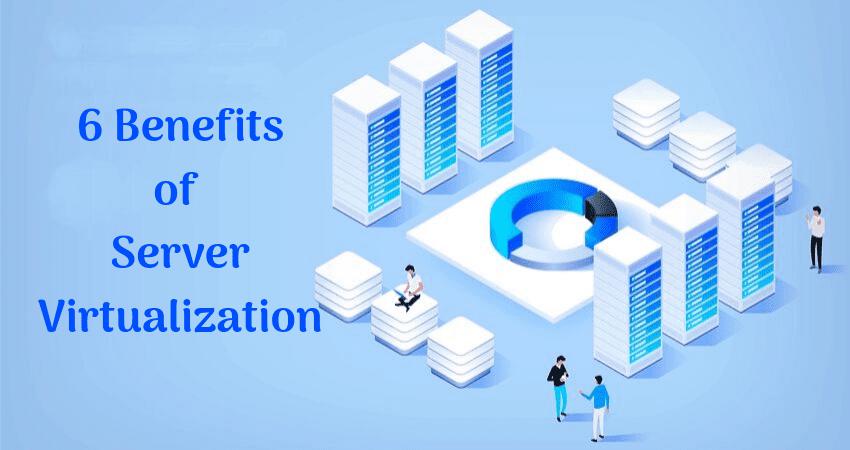Published By -Kelsey Taylor
If you want to enhance your network’s current performance along with its capacity and also want to know what are the requirements in the near future, then you need a technology refresh!
Server machines are powerful computers that host files and various applications centrally. They often have multiple CPUs that give servers the capability to handle multiple tasks simultaneously.
Network administrators assign a dedicated processing unit to each application.
Although this approach makes it easier to track any issues that arise within the applications without disturbing others, it doesn’t leverage the immense processing power of the modern server computers.
With this approach, we would require multiple servers as our network scales up. Server virtualization solves these problems by using specifically designed software that converts one server to separate virtual machines.
Server virtualization is the method of using software by creating various virtual instances on the physical server. It combines various operating systems on a single server.
It reduces app downtime without exceeding the budget and increases technical capabilities.
In this model, full virtualization uses a hypervisor which completely isolates guest machines and directly communicates to a physical server.
The limitation of full virtualization is that it has its own processing needs, which can slow down the applications.
The Paravirtualization model involves the whole network working together as one unit and eliminates the need for virtual machines to trap the instructions and make it more time-efficient.
The operating system recognizes the existence of hypervisor, and then it directly communicates by comments known as hypercalls.
OS virtualization model does not use hypervisors like Full and Para Virtualization as it allows the existence of multiple user-space instances.
Having fewer physical servers means less maintenance and management.

If a company switches from a physical server to virtual machines that reduce the physical server of the organization, that helps in saving the cost of power and cooling. The lesser physical server requires less hardware.
Server virtualization offers advanced features that are not available in the physical server; the features help to increase uptime.
Server virtualization takes lesser time to implement new technology/applications, recovery of data, and distribution of workloads.
If the business uses server virtualization, the various virtual servers will be acting in place of one physical server.
By this efficiency will only go up, and all virtual servers will produce the same output as one physical server in a more effective manner.
One of the greatest benefits of server virtualization is the recovery feature. As the data is not tied with one physical server, it has various servers, so if data crashes in one entity, then there is no fear of data loss.
Server virtualization comes with the benefit of backup and restores the entire virtual server; a business can quickly backup entire VMs and restore them.
Additionally, image-based backups make the disaster recovery much easier and time-saving.
By virtualizing servers and abstracting away the hardware, a business can prepare to move into the cloud.
The first step is to move to a private cloud from a public cloud. But as the public cloud matures and technology becomes more advanced, then the business becomes more comfortable to move data out of the data center into a cloud hosting facility
Data security is crucial for the success of the business and one of the most significant factors.
Server virtualization comes with a security risk as businesses have to spend extra for data security to ensure its data safety.
One of the major drawbacks is that all applicants are not virtualization-friendly; the reason behind it is that not all hardware or software vendors support it.
Even though most of the applications do support virtualization.
Depending on your existing hardware and network, the additional investment might be required to install hardware for the implementation of server virtualization.
More often than not, businesses have sufficient infrastructure to accommodate virtualization. You can work with a managed IT service provider to figure out the best possible option for your business; whether you should opt for purchase plans or should you go for monthly leasing.
As we can see, server virtualization has more advantages than disadvantages, and it is growing with the advances in technology solving and facilitating many operations.
If a company wants full control over the server, virtualization is the best choice.
You May Also Like to Read:10 Best Open Source Hypervisor
Kelsey manages Marketing and Operations at HiTechNectar since 2010. She holds a Master’s degree in Business Administration and Management. A tech fanatic and an author at HiTechNectar, Kelsey covers a wide array of topics including the latest IT trends, events and more. Cloud computing, marketing, data analytics and IoT are some of the subjects that she likes to write about.